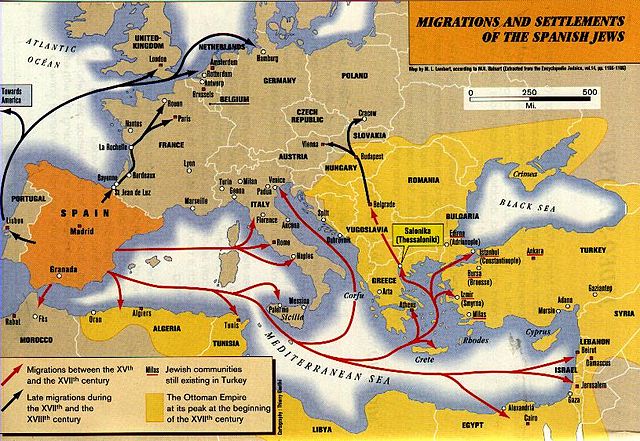
The Law 12/2015 of 24th June granting Spanish nationality to Sephardim originating in Spain, promoted by former Justice Minister Alberto Ruiz Gallardón, is a historic gesture that crowns the process of reconciliation of Spain with its Sephardim. This process began in 1900 when Senator Ángel Pulido reached out to the Sephardim resulting in the Government’s authorization to open synagogues in Spain. It continued in 1910 with the founding of the Alianza Hispano-Hebrea in Madrid and in 1920 with the establishment of the Casa Universal de los Sefardíes. In 1924, the Royal Decree of 20th December offered a legal framework which allowed some Spanish diplomats to provide consular protection to the Sephardim who had obtained the Spanish citizenship during World War II. In 1976, in the middle of the Spanish transition, the Queen visited the synagogue in Madrid, and in 1990 the Prince of Asturias granted the Concord Award to the Sephardic communities for their loyalty to Sepharad. Before the adoption of this law, there was a legal framework for Sephardim to become Spanish citizens but they had to reside in Spain for at least two years and were forced to renounce their previous citizenship, something that Israelis would never do.
The law was designed with the best intentions. These are captured in the beautiful preamble that sets out the rationale underlying the law. The resulting articles, however, are a true reflection of the fear of the flood of applications (some spoke of millions) in the period between the announcement of the law and its final wording. However, if I am not mistaken, this is the only law approved unanimously and supported by all political parties without exception. By the way, Portugal followed in the footsteps of Spain, but enacted a law earlier with easier requirements and a much simpler procedure. It seems that Portugal was ready to welcome with open arms the avalanche of Israelis seen as entrepreneurs who could contribute to the country’s growth.
In Israel, the huge expectations that were raised from the moment the law was announced were thwarted by the requirements and the procedure that Israelis interpreted as a contradictory message, opposed to the law’s intent. The press was very critical and there was huge disinformation until the law was finally approved. All of this, together with the difficulties involved in the interpretation of the legal text, led most Sephardic Israelis, potential candidates to become Spaniards, to give up even before trying.
The Embassy of Spain in Israel has played a key role in explaining the law with a press conference when it was approved, and following with various presentations of the law at the Instituto Cervantes. And speaking of the Instituto Cervantes, since the test of the Spanish language (DELE A2) and the test on constitutional and cultural knowledge of Spain (CCSE) are a requirement in this law, the best way to know how many Israelis are applying for Spanish citizenship is to check how many have signed in for the exams. According to the Instituto Cervantes, from October 2015 –the month in which the law was passed– about 180 people have signed in for the tests. By the end of the year this figure may amount to about 350 or 400 people, a negligible percentage of the Sephardim in Israel.
Two circumstances have placed me in this bureaucratic crossroad. While living in Spain, I was a member of the Jewish Community of Madrid which is member of the Federation of Jewish Communities in Spain (FCJE), so I have a close relationship with them. The law gives a special rol to the FCJE as the interlocutor of the Spanish State for issues related to Judaism. Also, I am a Spanish Sworn Translator, the only one based in Israel.
The Spanish notaries are only beginning to receive the first applications from Israel. Hopefully they will be sympathetic to the special circumstances of Israeli applicants, some of whom have to circumvent bureaucratic obstacles since they often need documents from countries that have no diplomatic relations with Israel.
I tell the Israelis who complain about having to learn the Spanish language and Spanish culture to pass the tests –despite having continued to use the Castilian language for five centuries outside Spain– to look at the positive side: they end up with a language spoken by nearly 500 million people, the second language in the world. In the end, there will be a colony of Spaniards in Israel who have never lived in Spain, but who know the language and the Spanish reality and who, above all, feel a special attachment that has allowed them to keep the memory of Sepharad live in their language and their traditions for 500 years.

